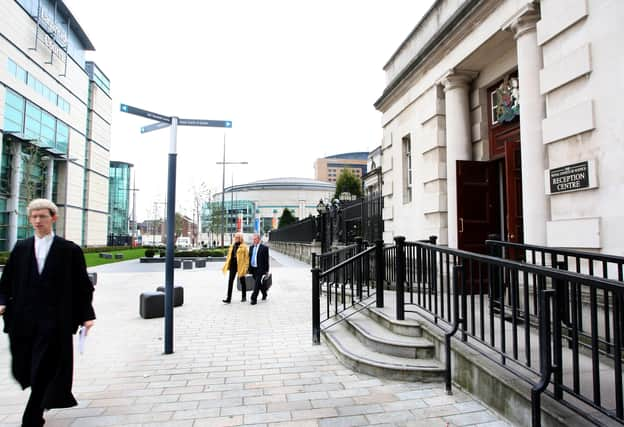Executive Office ‘does not have budget’ for Troubles pension - ‘the reality is there simply isn’t any money’


Senior judges were told the department will foot the bill for the compensation scheme if its budget is increased.
But counsel for one of the so-called Hooded Men insisted that a mandatory order should be made for payments to begin.
Advertisement
Hide AdAdvertisement
Hide AdBarry Macdonald QC claimed: “This is just further prevarication.”
Last month the court declared that the Executive Office is under a legal duty to fund the programme of pensions for those badly injured during the conflict in Northern Ireland.
The ruling followed a long-running dispute between Stormont and Westminster over who should pay for a scheme costing up to £1.2bn.
Parties were given a four-week deadline to find a solution to the stalemate.
Advertisement
Hide AdAdvertisement
Hide AdIn an update today the court was told the Secretary of State has met with Stormont ministers, while officials have been involved in further discussions.
Due to the potential for a resolution, a three-week adjournment was sought.
Opposing the application, Mr Macdonald argued that a mandatory order should be made now “requiring the Executive Office to do what they should have done this time last year”.
He insisted: “These discussions in one form or another have been going on since October 2019 when the legislation came into force.
Advertisement
Hide AdAdvertisement
Hide Ad“The obligation to make the payments was in force last year.”
However a barrister representing the Executive Office, said there was a “misunderstanding” about the extent of funding available to his client.
“The position has always been that the Executive Office will fund the scheme when it has the money. It doesn’t have the money,” Philip McAteer told the court.
He described it as a small department, with a budget of around £118m to meet other commitments, including £50m ring-fenced for historical institutional abuse compensation.
Advertisement
Hide AdAdvertisement
Hide Ad“The reality is there simply isn’t any money,” Mr McAteer submitted.
“It will be our submission the court cannot order a party to do something which it cannot do.”
During the hearing Lord Chief Justice Sir Declan Morgan pointed out that money for the scheme has to be obtained from the Department of Finance.
Adjourning the case, he directed that it is joined to proceedings as a notice party.
Advertisement
Hide AdAdvertisement
Hide Ad“They should be aware that the court is examining whether to make a mandatory order in relation to that Department,” Sir Declan said.
“The court will sit again on March 26 to deal with the question of whether or not it should make mandatory orders in relation to any of the parties, that is the Secretary of State, the Department of Finance or the Executive Office.”
The legal battle has continued since the High Court ruled in August last year that the Executive Office deliberately stymied introduction of the scheme in a bid to force the UK Government into footing the bill.
With no order made to provide grant funding, Brian Turley appealed that outcome in a bid to ensure the necessary financial package is immediately put in place.
Advertisement
Hide AdAdvertisement
Hide AdHe was among 14 men detained, forced to wear hoods and subjected to special interrogation methods by the British military as the conflict in Northern Ireland raged during the early 1970s.
Mr Turley took the original challenge to delays in implementing the pension scheme along with Jennifier McNern, who lost both legs in an IRA bomb attack in Belfast in 1972.
He has described the ongoing hold-up as another form of torture.